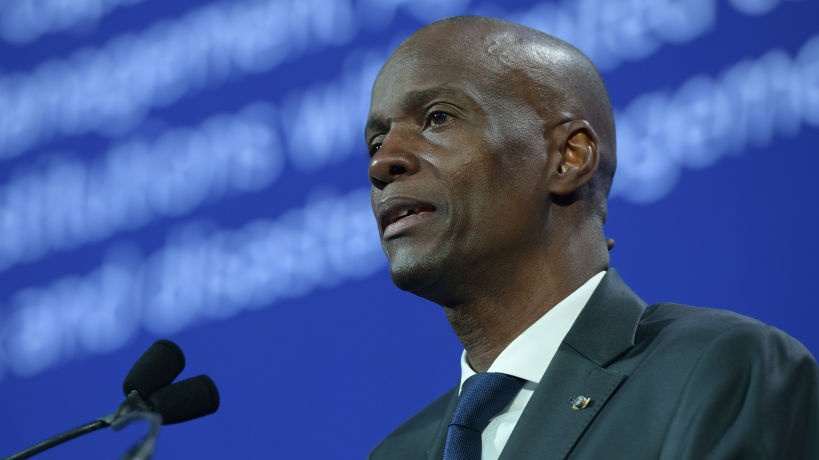Mario Antonio Palacios, a 43-year-old Colombian man who was allegedly involved in the assassination of Haitian President Jovenel Moïse last year, has been arrested in the United States. According to CBS News, the Department of Justice made the announcement on Tuesday, alleging that Palacios and others entered the presidential residence in Port-au-Prince on July 7 with the "intent and purpose of killing President Moïse."
The DOJ said Palacios is now charged with "conspiracy to commit murder or kidnapping outside the U.S. and providing material support resulting in death, knowing or intending that such material support would be used to prepare for or carry out the conspiracy to kill or kidnap."
According to the DOJ, Palacios fled Haiti and went to Jamaica following the assassination, but he agreed to travel to the U.S. after being deported from the island. Palacios, who is now in custody, could face life in prison if he is convicted.
About 20 other Colombian citizens and a group of Haiti-based dual Haitian American citizens are suspected of being involved in the assassination. The DOJ said the plot started out as a kidnapping attempt and ended in the president's assassination.
One of the suspects, who allegedly wrote to others and asked them to help with the plot during a trip to the U.S. on June 28, was later arrested in Haiti. Several others, including two U.S. citizens, have also been arrested in connection with the assassination.
According to the Pentagon, some of the suspects received U.S. military training in Colombia.
"A review of our training databases indicates that a small number of the Colombian individuals detained as part of this investigation had participated in past U.S. military training and education programs, while serving as active members of the Colombian Military Forces," Pentagon spokesman Lieutenant-Colonel Ken Hoffman said in a statement in July, according to CBS News.
As Blavity previously reported, it has been a tumultuous past year for Haiti. The country was rocked by a 7.2 magnitude earthquake in August, killing thousands of people.
"We're concerned that this earthquake is just one more crisis on top of what the country is already facing — including the worsening political stalemate after the president's assassination, COVID and food insecurity," Jean-Wickens Merone, a spokesman with World Vision Haiti, said in a statement in August.
